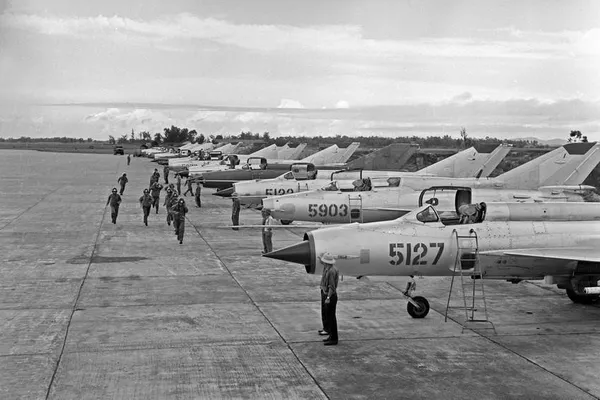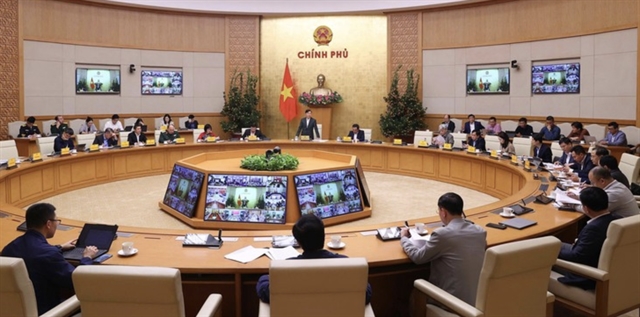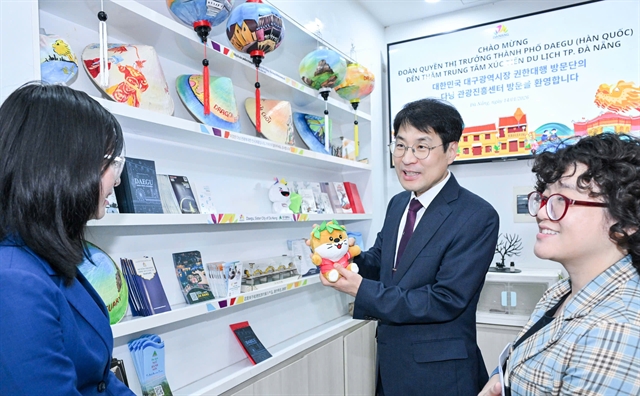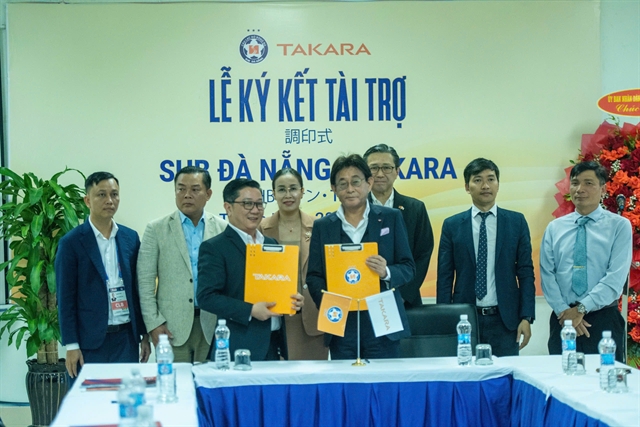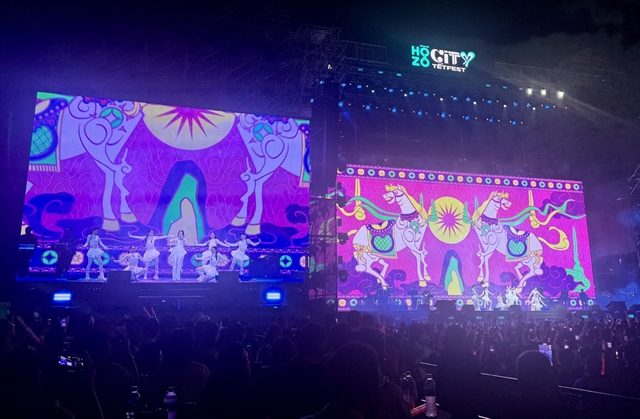 Features
Features
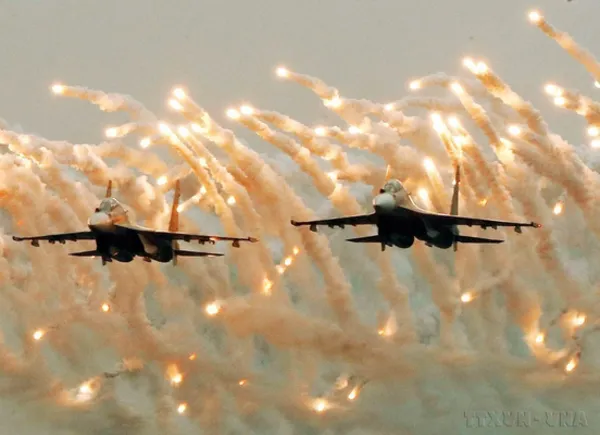
As thousands of Cubans gathered to say a final goodbye to Fidel Castro, the island’s former leader and national hero, another country half way across the world also shared their sorrow at the passing of one of the modern world’s most distinguished revolutionary icons.
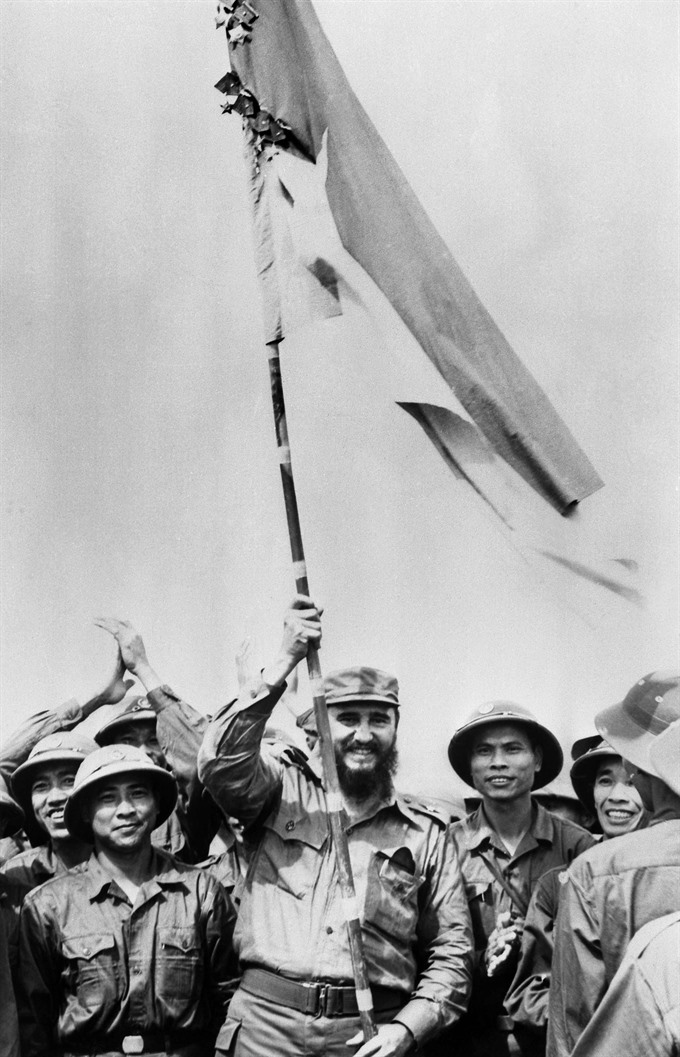 |
| This file photo taken on September 1973 shows Cuban First Secretary of the Cuban Communist party and President of the State Council Fidel Castro (C) holding a flag during his visit to Central Viet Nam. — VNA Photo |
HÀ NỘI — As thousands of Cubans gathered to say a final goodbye to Fidel Castro, the island’s former leader and national hero, another country half way across the world also shared their sorrow at the passing of one of the modern world’s most distinguished revolutionary icons.
The Cuban liberation fighter had a special place in the heart of Vietnamese people, especially those who devoted their life for the country’s struggle for independence and reunification. In Fidel, we found a comrade who not only shared our ideals and beliefs but also fully understood our determination and sacrifices as someone who experienced it firsthand through his own struggle to liberate his people and country.
In Fidel, Việt Nam found a true friend. A friend that came to our aid during time of dire need as our young nation stood up to the power of the US – the world’s biggest superpower – as our country was ravaged by artillery fire and B52s’ bombs, and our people shed blood in the fight. It was then that Fidel came to our country.
He was the first and the only head of state to ever visit the frontline provinces of Quảng Trị and Quảng Bình, arguably the most bombarded and heavily contested regions in Việt Nam during the American War.
Việt Nam’s former ambassador to Cuba, Phạm Tiến Tư, said that despite the apparent danger and Vietnamese leaders’ advice against it, Fidel decided to visit the provinces anyway during his stay in Việt Nam in September 1973.
Tư, who used to be Fidel’s Vietnamese translator, said the Cuban revolutionary wanted to go because he considered Việt Nam as the outpost in the fight against imperialism. It made it then, for him, a duty to visit the very frontline of the Vietnamese people’s struggle.
It was there that he witnessed the struggle of the people of Việt Nam and the extraordinary sacrifices that ordinary people made to continue fighting. Fidel was so deeply moved he decided that Cuba was to lend a helping hand by building a general hospital in Đồng Hới Town, Quảng Bình Province.
Former deputy chairman of Quảng Bình, Lại Văn Ly, recalled that day as Fidel moved towards the frontline when he spotted several local volunteers being patched up next to the road, after a bomb exploded during a bomb clearance mission.
He stopped and asked the then Cuban ambassador to Việt Nam, Valdes Vivo, to help bring the wounded to the nearest hospital. He was very moved by the bravery of the local volunteers, Ly said.
Nguyễn Đình Bin, former deputy minister of Foreign Affairs, who was among a thousand Vietnamese students studying in Cuba, and had the honour of meeting Fidel on many occasions, said his impression of the Cuban leader was that he was warm, friendly and extremely knowledgeable.
“My best memory of him was when he personally drove the then Deputy Prime Minister Lê Thanh Nghị to a farm in Picadura, La Habana, during Nghị’s visit to Cuba in 1967,” Bin said.
“He asked about livestock farming in Việt Nam. At the end of the day, he offered to provide Việt Nam with a healthy supply of chickens and cows for animal husbandry. It was a simple yet very practical and caring gesture.”
In May 19, 1974 construction of the hospital that Fidel generously pledged to the cause of the Vietnamese people’s fight for freedom was begun. Hundreds of Cuban engineers and workers were sent to help.
The General Hospital Đồng Hới now stands as a symbol of Việt Nam-Cuba friendship. The hospital has been taking on several initiatives in recent years to expand and develop, in order to become one of the leading medical institutions in the region.
Besides his visit in 1973, Fidel came back to Việt Nam in 1995 and 2003, during which the friendship and cooperation between the two countries witnessed new milestones.
Under his leadership, Cuba was the pioneer in the world movement supporting Vietnam’s struggle for independence as well as national construction in the post-war era.
Fidel was presented with the Vietnamese State’s Golden Star Order in 1982 and Hồ Chí Minh Order in 1989.
Unlikely as it may seem at first glance for two countries that are separated by vast oceans and distances, we’ve found in each other a friend that could be counted on in the hour of truth.
Fidel Castro is to remain, for a long time, a symbol of the struggle for freedom of oppressed people everywhere and to Vietnamese people “a great faithful friend, close comrade and brother of Việt Nam”, as Vietnamese Chairwoman of the National Assembly Nguyễn Thị Kim Ngân wrote of him in her note of condolence to the people of Cuba. — VNS

